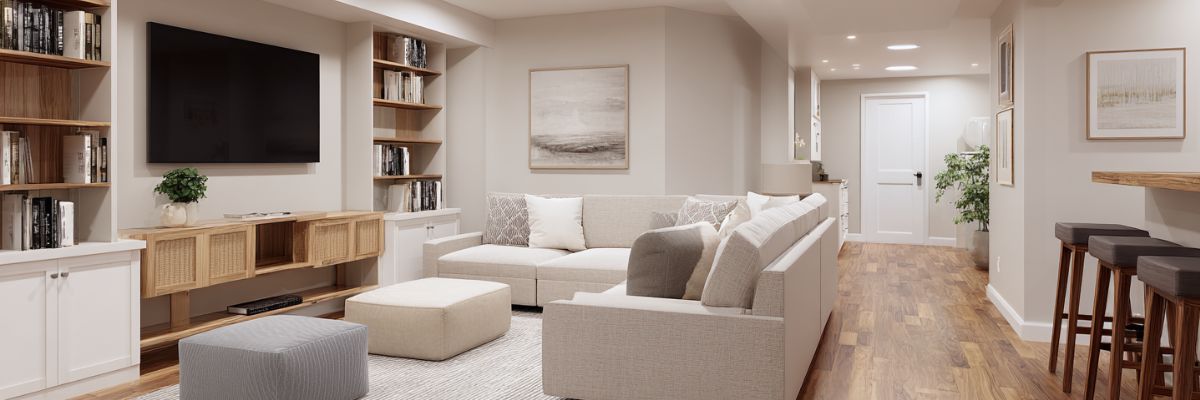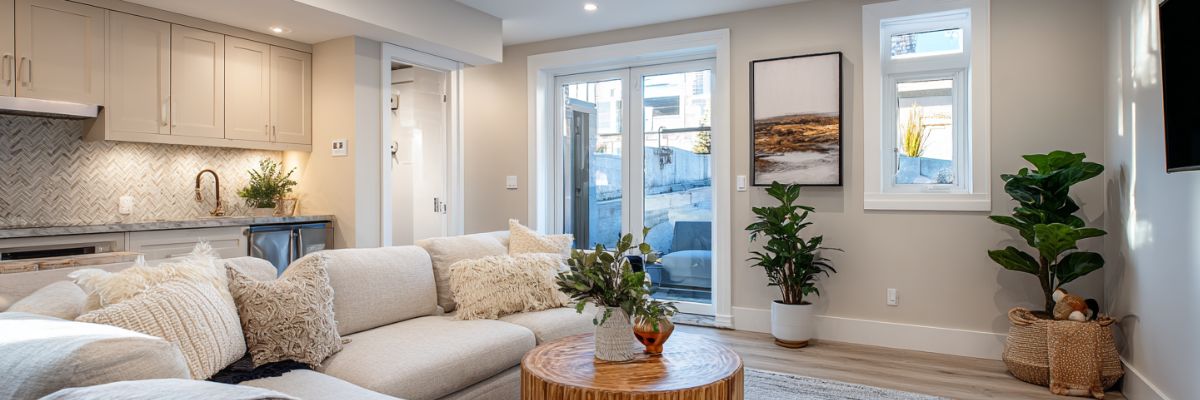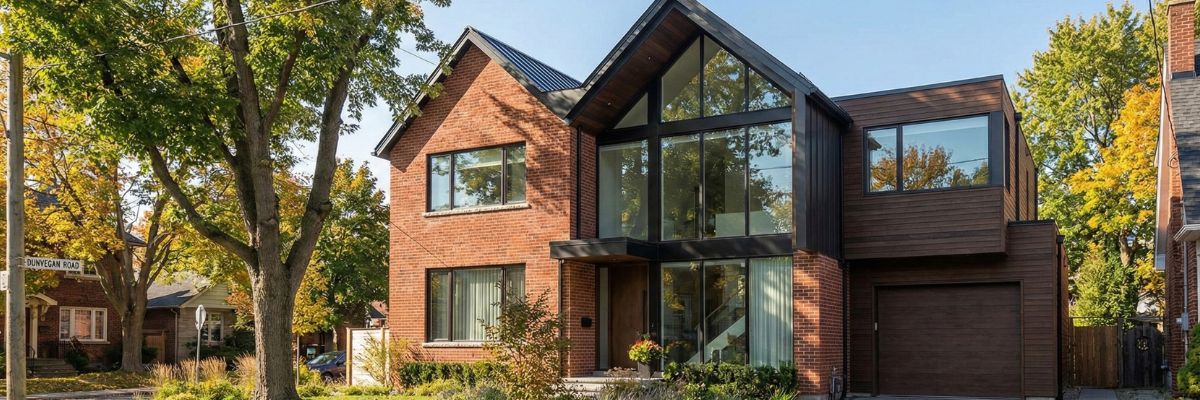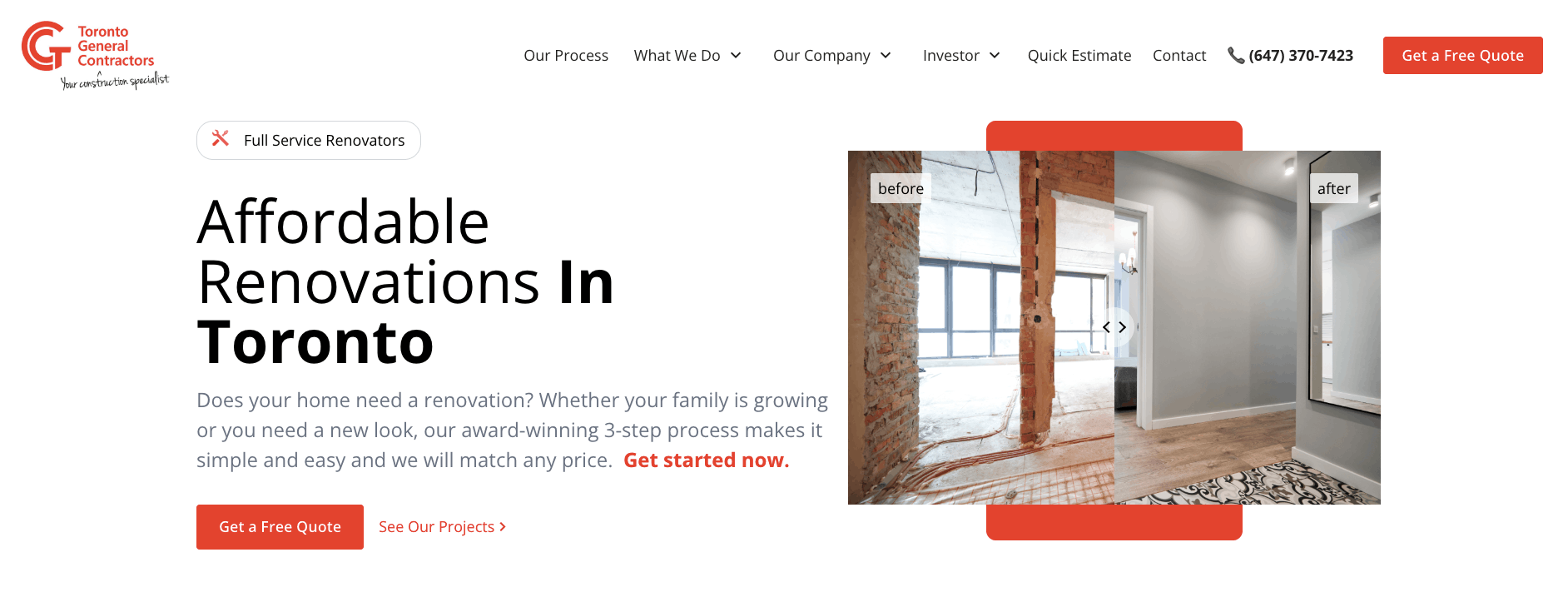Do You Need a Permit for a Basement Renovation in Toronto?
Do You Need a Permit for a Basement Renovation in Toronto?
In Toronto, you generally need a building permit for most basement renovations - especially if your project involves structural changes, plumbing, electrical work, creating a separate entrance, or adding a rental unit. Cosmetic updates like painting, installing flooring, or replacing cabinets typically do not require a permit, as long as you are not altering the structure, plumbing, or electrical systems.
Understanding the rules is essential to avoid fines, delays, and legal issues. Below, we break down exactly when permits are required, the steps to get one, associated costs, and the risks of skipping the process.

When is a Permit Required for Basement Renovations in Toronto?
The City of Toronto Building Division enforces permit requirements under the Ontario Building Code and municipal bylaws.
Structural Changes
Any work that changes the structure of your home will require a permit. This includes:
- Adding or removing load-bearing walls
- Underpinning or lowering the basement floor
- Modifying or reinforcing the foundation
- Enlarging basement windows or door openings
Structural work must be engineered for safety, and inspections ensure compliance with building codes.
Plumbing Work
If your renovation involves changes to your plumbing system, a permit is required. Examples include:
- Adding or moving sinks, toilets, or showers
- Modifying drain lines or water supply systems
- Installing a new bathroom or laundry area
Electrical Modifications
Electrical work beyond simply replacing light fixtures generally requires a permit and inspection from the Electrical Safety Authority (ESA). This includes:
- Adding outlets or circuits
- Relocating electrical panels
- Installing recessed lighting or major rewiring
Adding a Separate Entrance or Walkout
Creating a basement walkout or separate entrance for safety and accessibility reasons requires a permit, as it changes the structure and may involve excavation.
Secondary Suites and Rental Units
If you plan to add a legal secondary suite in your basement, you must obtain:
- A building permit for construction
- A separate registration or occupancy permit for the rental unit
- Proof of compliance with fire safety and zoning regulations
Secondary suites require proper egress windows, smoke and CO alarms, fire separation walls, and sometimes sprinkler systems.
When a Permit Is Not Required
Some cosmetic updates can be done without a permit. These include:
- Painting walls or ceilings
- Installing or replacing flooring
- Changing light fixtures without altering wiring
- Replacing cabinets without modifying walls or plumbing
However, the moment you make changes to the structure, plumbing, or electrical systems, you move into permit-required territory.
Permit Requirements by Renovation Type
Risks of Renovating Without a Permit
Skipping the permit process can lead to serious problems:
- Fines and Stop-Work Orders – City inspectors can halt your project and impose penalties.
- Costly Repairs – Unpermitted work that does not meet code may have to be demolished and redone.
- Legal Action – Non-compliant work can result in legal disputes with neighbors or the city.
- Resale Complications – When selling your home, buyers and lenders may require proof that renovations were done with proper permits.
The Permit Application Process in Toronto
Step 1 – Prepare Detailed Plans
For structural or major changes, you will need:
- Architectural drawings
- Structural engineering reports (if underpinning or altering the foundation)
- Mechanical, electrical, and plumbing plans if applicable
Step 2 – Submit Your Application
Applications can be filed:
- Online via the City of Toronto’s ePlans portal
- In person at a district Toronto Building office
You will need to provide project details, property information, and all required drawings.
Step 3 – Pay Permit Fees
Fees start around $206.53 for small, simple projects, but structural and complex renovations can cost much more. For underpinning or adding a suite, fees are typically based on square footage and scope of work.
Step 4 – Review and Approval
City staff review your plans to ensure they meet the Ontario Building Code, zoning bylaws, and safety standards.
Step 5 – Inspections
After approval, several inspections will take place during construction to verify compliance. You must schedule these before work is covered up.
Special Rules for Legal Secondary Suites
Toronto promotes adding legal rental units to increase housing supply, but the requirements are strict. A secondary suite must:
- Have its own kitchen, bathroom, and sleeping area
- Meet fire safety codes (fire-rated walls, smoke and CO detectors, possibly sprinklers)
- Have a separate entrance or safe exit route
- Provide adequate ceiling height and ventilation
In addition to the building permit, you must apply for suite registration with the city before renting it out.
How Much Time the Process Takes
While simple cosmetic renovations can start immediately, projects that require permits can take weeks or even months before approval.
- Small projects: 2–4 weeks for approval
- Major renovations or underpinning: 2–3 months or more, depending on plan complexity and workload at City Hall
Delays often occur when applications are incomplete or drawings fail to meet code.
Tips for a Smooth Permit Process
- Hire a Licensed Contractor – Professionals know how to prepare code-compliant plans.
- Work With an Architect or Engineer – Especially for structural changes, underpinning, or secondary suites.
- Submit Complete Documentation – Missing details will delay approval.
- Schedule Inspections Promptly – This keeps your project moving without unnecessary downtime.
Frequently Asked Questions
Can I Renovate My Basement Without a Permit?
Yes, if the renovation is purely cosmetic - painting, new flooring, or cabinetry - you generally do not need a permit. Anything involving structure, plumbing, or electrical work requires one.
What Happens If I’m Caught Without a Permit?
You could receive a stop-work order, fines, and be required to remove or redo work to meet code.
Do I Need a Permit for a Basement Kitchen?
Yes. Adding a kitchen involves plumbing, electrical, and ventilation work - all of which require permits and inspections.
Can I Apply for a Permit Myself?
Yes, homeowners can apply directly, but many hire contractors or architects to manage the process.
Final Thoughts
If your Toronto basement renovation involves anything beyond paint and flooring, you probably need a building permit. Structural work, plumbing and electrical modifications, new entrances, and rental units all fall under permit requirements. The process may take time, but it protects you legally, ensures safety, and adds value to your home.
For complex projects, especially secondary suites, working with experienced contractors and architects can help you navigate the process smoothly and avoid costly mistakes. Toronto General Contractors specializes in basement renovations that meet all building code and permit requirements. Our team can handle design, drawings, permit applications, and construction from start to finish – ensuring your project is completed on time, on budget, and fully compliant.
Contact us today to schedule a consultation and start planning your basement renovation with confidence.



.jpg)



.jpg)

.jpg)
